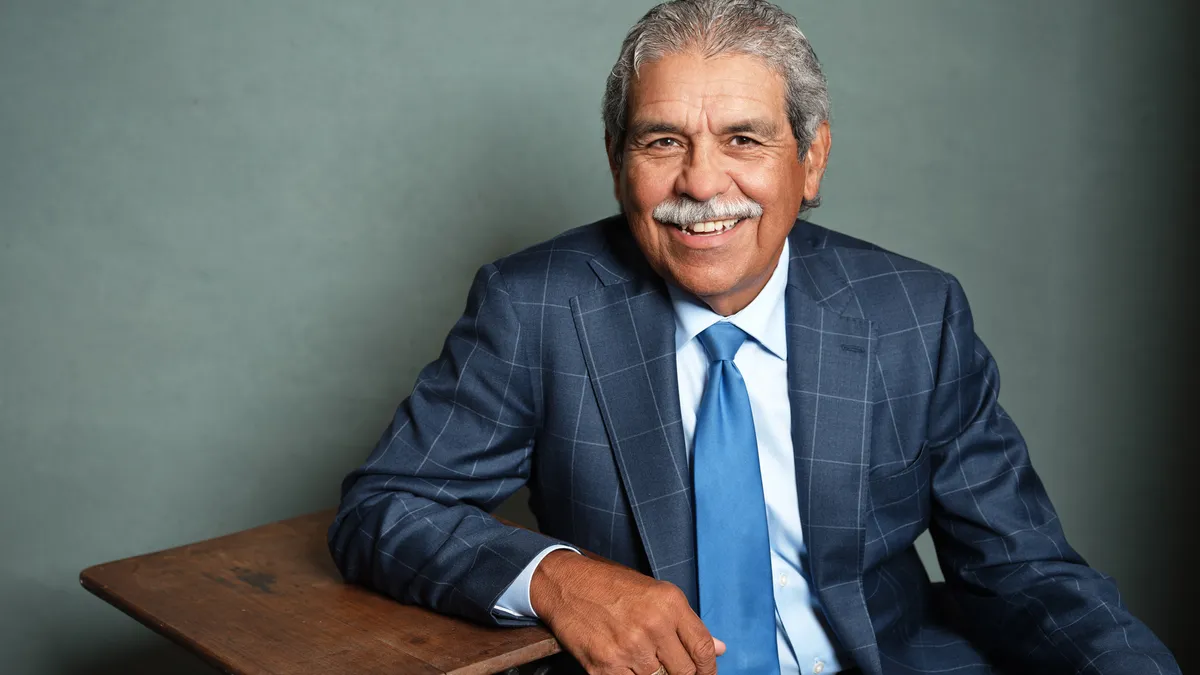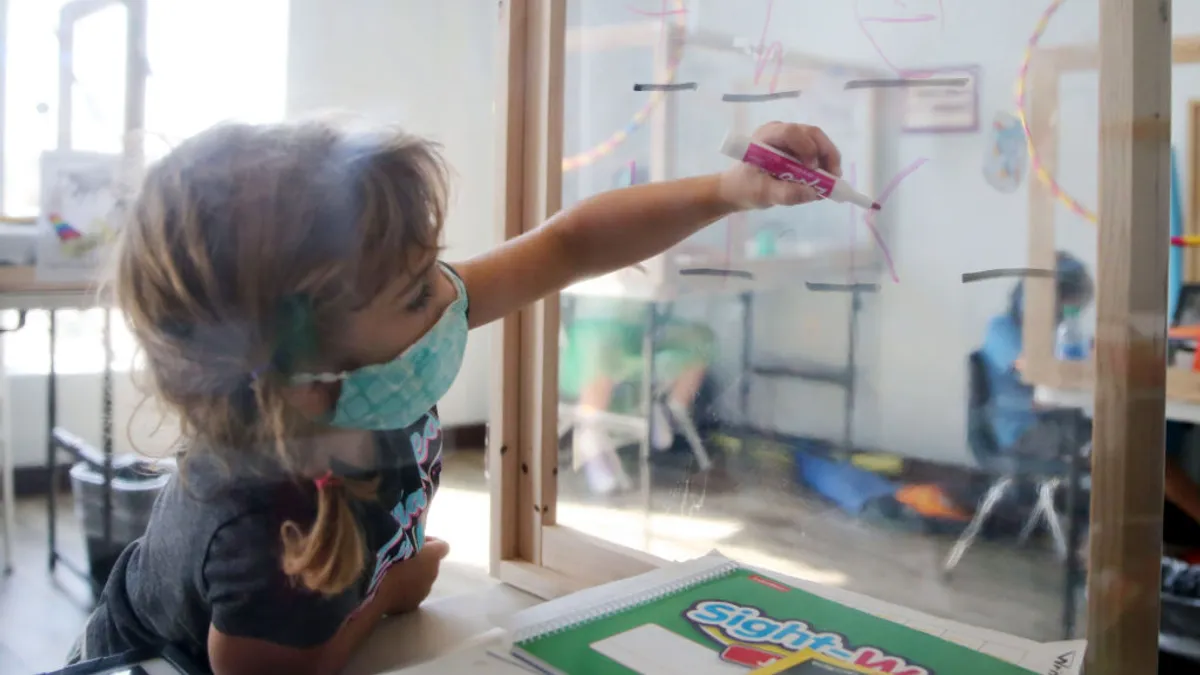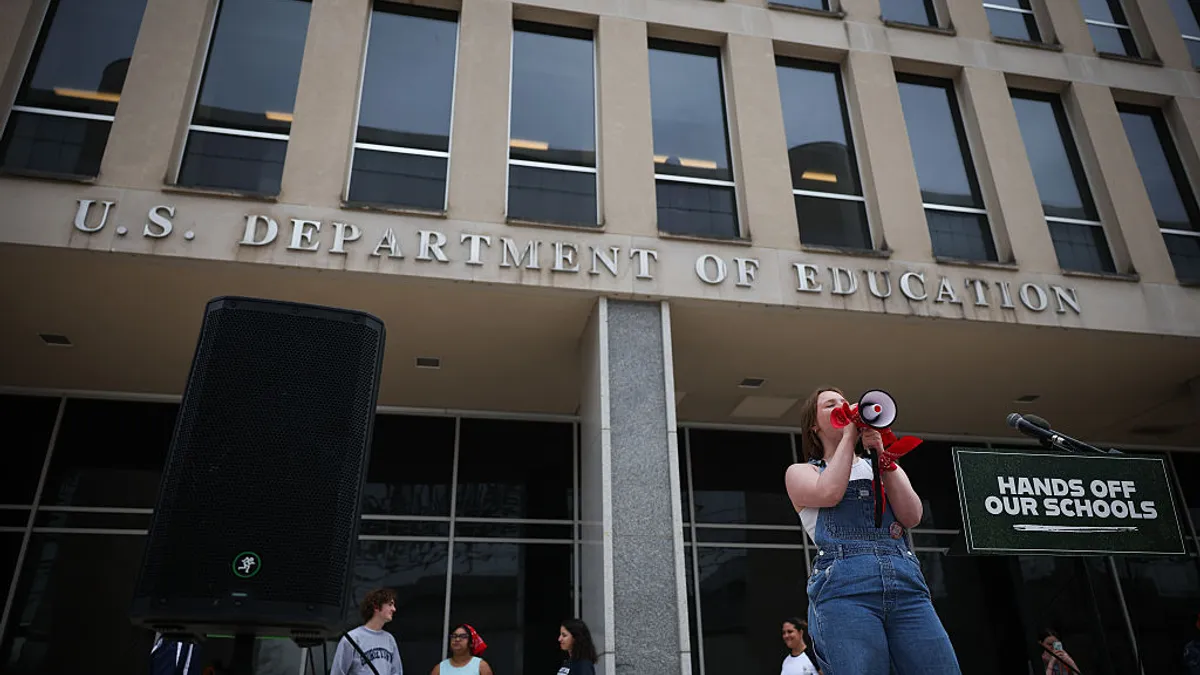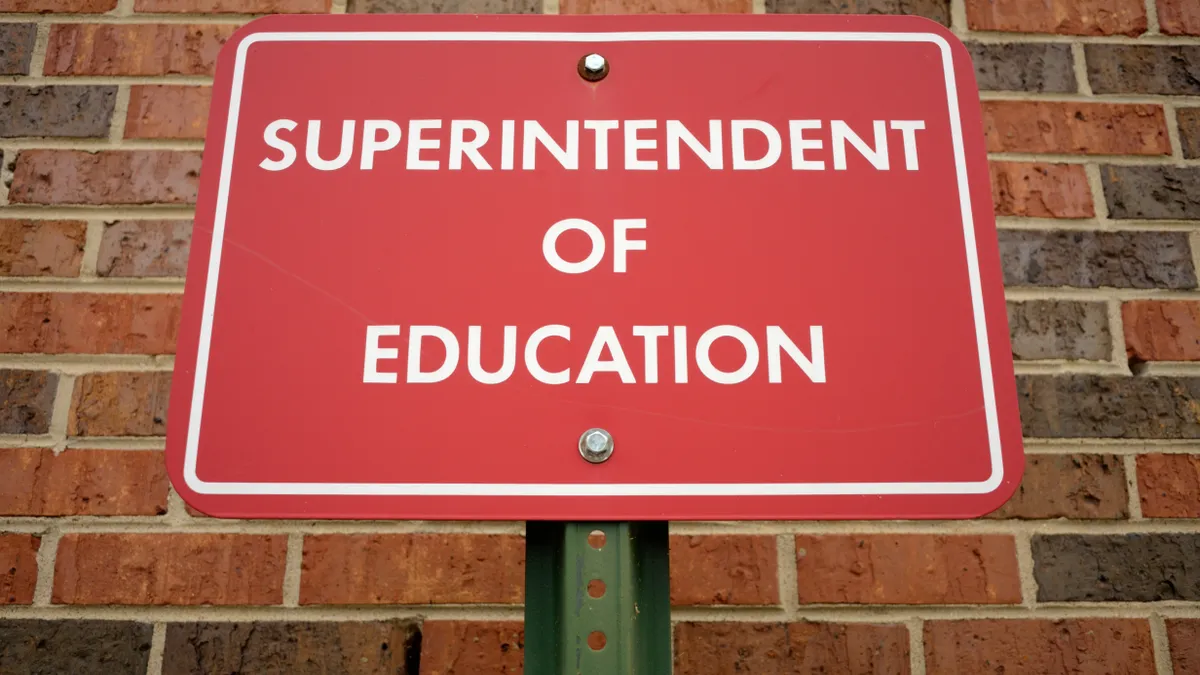When disputes over mask mandates in Texas, Florida and other states garnered national headlines earlier this year, Dallas Independent School District Superintendent Michael Hinojosa’s determination to stand his ground on what he believed to be the best decision for students and staff made him a de facto face of district leaders butting heads with state officials.
At the time, Hinojosa suggested superintendents and doctors had been “hung out to dry” by bans on school mask mandates in several states. But despite public disputes with Republican Gov. Greg Abbott and the Texas Education Agency, he says the differences weren’t personal.
“I think people saw that,” Hinojosa told K-12 Dive recently. “He has a big, complex state to run. I have a big, complex school district to run. And we were just at philosophical odds.”
TEA ultimately opted not to enforce the state’s mask mandate ban, which came with a risk of legal and financial consequences, after the U.S. Department of Education threatened intervention over mask bans as a potential discrimination and civil rights concern.
Early decisiveness
At the dawn of the COVID-19 pandemic, Hinojosa was ahead of the curve in recognizing what was on the horizon. At the time, the district had recently experienced a tornado that destroyed three schools.
“What I saw was that our team, our principals, our teachers were resilient, and that we could bounce back,” Hinojosa said. “And within 24 hours, we already had options for some of the schools that got damaged.”
Not long after, just before the district’s spring break in 2020, Hinojosa saw in the news that the COVID-19 health crisis in China was beginning to spread to the U.S. His team quickly enacted a “master plan” to roll devices out to students. Then, as many of his peers made decisions to close schools for a week or a month, Hinojosa had another realization.
“I said back then, ‘No, this is going to be indefinite,’' he said, recognizing the district was “very fortunate” to be able to get devices out to as many students as possible before spring break. “We didn't come back again until the next October,” Hinojosa said, noting that the district — like many others — had to navigate emergency meal distribution, “and then we discovered that we had 36,000 households that did not have broadband at home.”
That led to the launch of Operation Connectivity, beginning with an initial short-term solution of just giving out hotspots to students. In the search for more permanent solutions, the district has partnered with more than 40 education institutions, businesses and nonprofit partners in co-founding the Internet for All Coalition.
A report compiled earlier this year for the district by CTC Technology & Energy also made several high-level recommendations that were presented to the district’s Board of Trustees this summer. Among those recommendations:
- Use federal and state programs to fill gaps in highest-need neighborhoods.
- Invest in publicly owned fiber-optic infrastructure.
- Extend Dallas ISD’s private cellular network pilot.
- Expand digital equity efforts in training, recycling and tech support for families.
Though Hinojosa admits that some decisions made on the fly early in the pandemic “got me in a little trouble with my school board,” he also contends a crisis demands command decisions.
“Typically, I make consensus decisions and get a lot of people involved,” he said. “But I think I got forgiven because people understood it. And the board members, once they realized that we didn't have time for a board meeting, we didn't have time to do all these other things ... they got over it.”
The support from the community has “actually even gotten better,” he said. “People have supported me all the way along, and I've gotten very little pushback.”
Level heads prevail
Due in part to his easygoing nature and willingness to meet both the community and officials where they are, Hinojosa’s six-year tenure has seen the nearly 154,000-student district recognized as “one of the nation's fastest-improving school districts” by the Council of the Great City Schools.
A study of large districts’ National Assessment of Educational Progress scores released by that organization in June found Dallas had improved in 4th- and 8th-grade math, as well as in 8th-grade reading. Hinojosa told K-12 Dive in 2019 that Dallas had dropped from 43 schools under state watch for takeovers during his tenure to just four. The district also prides itself on offering a variety of district-grown school choice options, including an upcoming pre-K-8 biomedical school on the campus of University of Texas Southwestern Medical Center.
Hinojosa’s tenure has also seen the implementation of a Teacher Excellence Initiative, in which the best-performing teachers in the district receive higher pay and are incentivized to take on tougher school assignments. Additionally, he has been able to convince the community to back bond efforts to support district improvement, including a massive $1.6 billion package in 2015 — no small feat even as a blue city in a red state.
“He's a great communicator,” said Josue Tamarez Torres, a 4th-grade math teacher at César Chávez Learning Center. “He speaks his mind, and I have noticed when he does press conferences and things like that, he says what he means. He's able to tell the community, ‘This is why we're doing things. This is where we're going. This is the right thing to do at this moment.’”
It’s a sentiment echoed by Drexell Owusu, a parent with three children in Dallas ISD and the chief impact officer of The Dallas Foundation.
“It's my view that Dr. Hinojosa’s work over the last several years, not just in COVID, has helped set the groundwork for folks to say, ‘I might not agree with you on everything, but I'm willing to hear you out,’” said Owusu. “We're starting to see, I think, some statewide policy work that is a direct outcropping of his work. By extension, it does give him a little bit of grace sometimes to squabble with politicians as necessary, but always trying to do so in a respectful way.”
“That is an acknowledgement of the work he is trying to accomplish, not about the politics itself. And I think that is a skill that is hard to replicate."






















